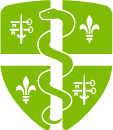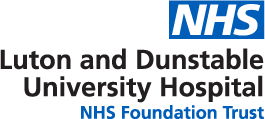Are the facilities suitable for someone my size?
Our treatment centre has been modified to allow patients of all sizes to attend. We have specialist equipment that can support bariatric patients.
Am I eligible for surgery?
The current access criteria is
Herts CCGs:
Other:
Do I need to lose weight before surgery?
Yes, dependant on your BMI you will commit to a 6 or 12 month weight loss programme. We normally recommend that patients aim to lose 5% of the weight recorded at your first visit. If you are unable to meet your weight loss target it could mean that your surgery is delayed or even cancelled in extreme situations.
Why do I need to complete the Tier 3 programme before surgery?
In order to be funded for surgery, Clinical Commissioning Group (CCG) criteria state that all patients must complete the Tier 3 programme. This is a valid reason as it firstly shows that you are committed to losing weight and you will find it easier to make the necessary lifestyle changes to maintain your weight after surgery. Losing weight will also make your operation easier and will lower the risk of operative complications.
How long will it take to recover from surgery?
Depending on your recovery rate you will need to spend a day or two in hospital. Our specialist Theatre has tailor-made equipment to cater for bariatric patients. The wounds usually take between 2 – 3 weeks to heal but most patients are able to go back to work after 2 weeks. We do not recommend vigorous activities such as exercising for at least two weeks after the operation.
Can I keep taking medication after surgery?
Following your operation a full review of your medication will be made and advice on what you will need to keep taking will be given. There is evidence that bariatric surgery can reduce the need for diabetic medication and in a high number of cases surgery has taken away the need for diabetes medication all together.
Can I eat after surgery?
As your stomach will be smaller you need to allow time for solid foods to be tolerated. You will initially follow a liquid only diet, progressing on to harder textures over four to eight weeks.
What can I eat after surgery?
You will be given a phased post operative diet to follow for the initial twelve week period following your operation. You will be advised to have a liquid only diet in the first two weeks followed by soft food (puree). The types of food that people can tolerate can vary and you will be given a specific plan at your pre op appointment.
Will I have loose skin?
It is not uncommon for patients to develop loose skin after a significant weight loss. We recommend that patients continue to exercise to tone the troublesome area and maintain a healthy eating plan. Although this will not eliminate the problem it will help to reduce the problem.
The Clinical Commissioning Group (CCG) no longer routinely fund skin excision (plastic surgery) for all of our patients. Criteria has been developed specifically for accessing plastic surgery after bariatric surgery and you should pursue this with your local CCG, thorough your GP. Some patients are eligible but this must be agreed in advance by your local PCT (Primary Care Trust). We are able to offer this to all patients regardless of criteria (recommended at least eighteen months after bariatric surgery) in our private facility, the *(Cobham Clinic).
Post Op Advice
In the days and weeks after surgery if you experience any the following symptoms you should contact the Obesity team immediately.
Pain
After surgery, you may feel some pain and discomfort, this is not uncommon. The pain medication that you have been provided should help. If the pain is not controlled or gets worse then you should contact the team. If the pain is severe then they may advise you to seek urgent medical help.
Vomiting
After your post op liquid diet has finished, not being able to eat solid food is not normal. It is very important that you take the medication given to you at the time of discharge. Remember to eat slowly and chew all food properly before swallowing. If you have just moved to the next phase of the post op diet plan, try moving back one stage. If you can’t keep any liquids down it is an emergency and you should call the team straight away and seek urgent medical help.
Shortness of Breath
In the weeks after your surgery this could be a sign of problems. If you are concerned you should call us straight away and seek urgent medical help.
Fever & Palpitations
Serious problems may start with small changes like a fever and palpitations. If you feel unwell and you are concerned call the team straight away and seek urgent medical help.
Constipation
This is quite common after surgery. Make sure that you continue to take your laxatives regularly and stay well hydrated. If your symptoms do not improve contact your GP or our team for further advice.

